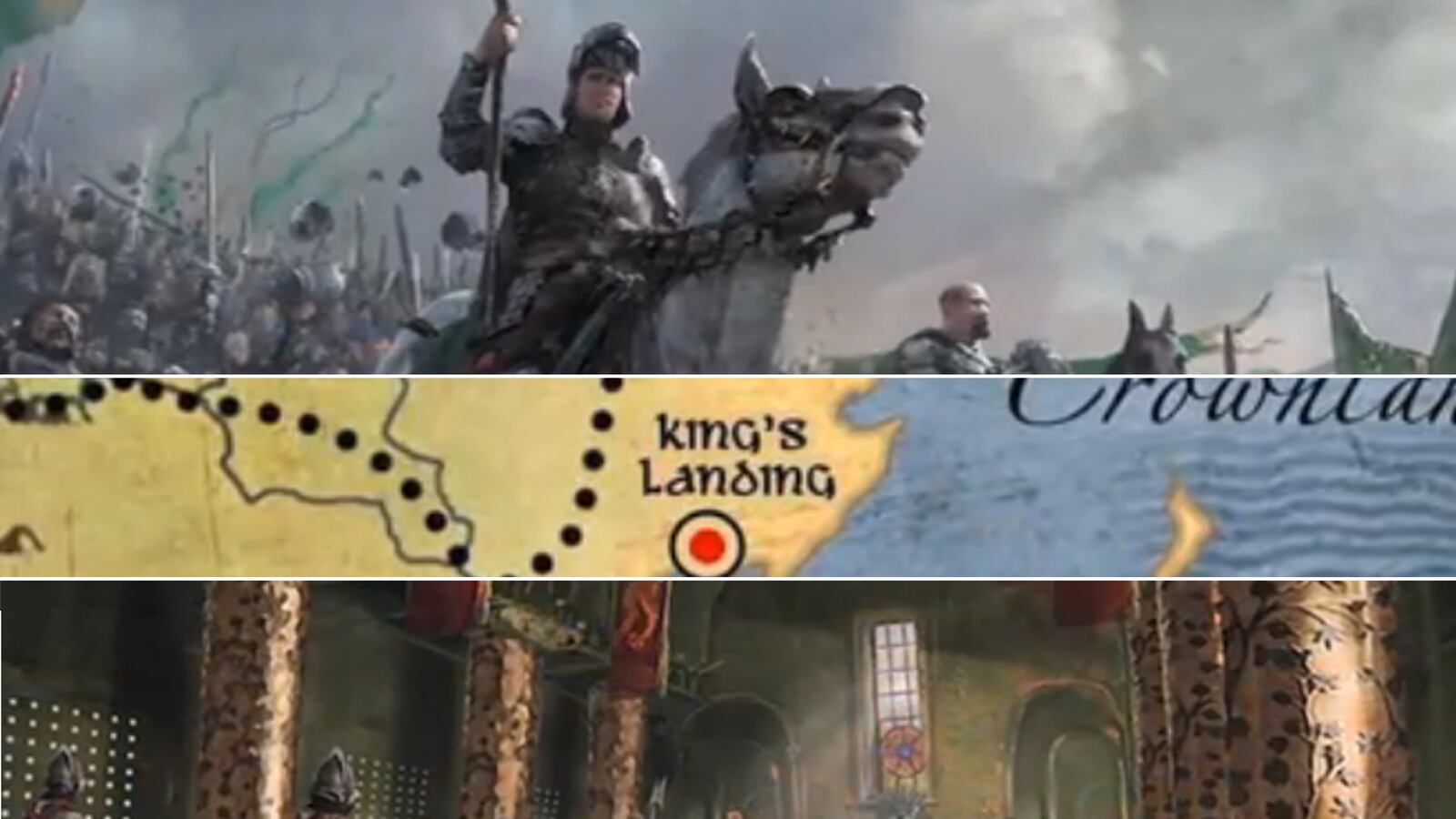If you were one of the 100,000-plus people who signed up on Facebook for the Game of Thrones app over the past few days, you might have stumbled not upon knights and kingdoms in the world of Westeros but a “500 Internal Server Error.” The brand-new game’s developers have been slammed by traffic since the beta version of Ascent dropped late last week.

That’s a good thing, of course. It’s the online equivalent to hundreds of people waiting in line outside Apple stores every time a new iPhone or iPad comes out, and it should have the makers of Candy Crush Saga quaking in their boots. Ascent is not only the latest way to geek out on the already enormously popular Thrones franchise, it also promises to be the most absorbing offering in a category of time-killing that transcends the xBox and one of those compact-disc thingies that costs $50 a pop. Anywhere you’re on Facebook, you’re in Westeros, if you want to be.
“The rumors of the slave trade are true,” those who finally do bust through the traffic are informed at the game’s opening screen. “End their foul business, and King Robert will reward you handsomely.”
Choose “I am at your command, Lord Arryn,” or blow the king off and do your own thing. Then comes the choice of name and avatar—I came up with “Fancifus Rolandium”—and you’re off to hunt down “slavers.”
From there, gamers can pop in and out of Westeros at will, hiding it in a Firefox tab at the office right next to that mind-numbing spreadsheet or keeping it brazenly open back at home on the couch, sucking down Dr. Pepper and Pringles. That audience reach (Facebook hit 1 billion users in October), portability (any web browser is a gaming device), and range of engagement represents the genius of games on Facebook, and the developer’s founder and CEO is hoping Ascent sets a new standard.
“When I look at Facebook games, they’re still pretty trivial, in terms of what it means to utilize these relationships,” said Jon Radoff, CEO and founder of the Boston-based startup Disruptor Beam. “‘Give me a nail so I can build my barn.’ Here you’re actually making decisions that impact other places.”
Radoff was in talks with the author of the Thrones book series, George R.R. Martin before HBO got involved in Ascent. It’s “social,” naturally, meaning the game can be played with and against your Facebook friends.
It can also be played at work.
“Most Facebook gaming takes place during the workday,” said Hank Halley, chief operating officer of Disruptor Beam.
Ascent is free, which means it faces the same challenge (and opportunity) as Facebook itself has: how to cash in?
The business model is different from that of a console, Radoff said. Players can make it all the way through the game without spending a nickel, but they can cough up a buck here or there for a bundle of goodies, like a “primal pack,” complete with a direwolf, sword, and other stuff.
“We only make money if you’re having a lot of fun with the game,” he said.
With Ascent, Game of Thrones isn’t the first television series to move onto Facebook, said John Gaudiosi, a video-game expert who wrote a piece last week about the app, which he has yet to play. There are Walking Dead and Hunger Games Facebook offerings. But from what he can see at this point, he said, it breaks new ground.
“Compared to those, this looks like a very rich role-playing game experience,” Gaudiosi said. “You can go in and spend a lot of time in the world.”
The appeal for a game company to go straight to Facebook is not only the size of the user base but the ability to develop a game quickly and cheaply, Gaudiosi said—“versus two-plus years and the $20 to $50 million it would take to do a traditional console game. This is an easy way to get a game out to a mainstream audience.”
It also keeps fans interacting with the show, even when it’s on hiatus.
“This allows Hollywood to stay engaged with their most avid fans in an interactive way that goes well beyond just having a Facebook page,” Gaudiosi said.
The game is already hugely popular. By Tuesday morning, Disruptor Beam’s staffers found themselves apologizing repeatedly for the servers not being “happy at the moment. Please give us time to figure out the issue and restart them.”
The lag made for some disgruntled would-be gamers.
“Oh my God are you kidding me with this crap? The servers are down, they’re up, they’re down...even when they’re up, I’m waiting ten minutes for anything to respond after I click on it,” griped Darren Madigan on Ascent’s Facebook page. “When this game actually works, it’s between ten and forty minutes wait for anything to complete, which is absolutely maddening. And most of the time, IT DOESN’T WORK...Seriously...are you hosting this thing on two Chromebooks and an Ipod, or what?”
That set off a whole nerd debate.
“Perhaps you should gtfo or maybe develop the brain capacity to understand that this is beta,” chided David Buhagiar.
Still, user grumblings aside, this is “a good problem to have,” Halley said.






